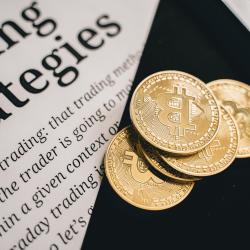Sustainable Investing: Aligning Your Portfolio with Your Values
A profound shift has taken place in the way people think about investing. No longer a game played solely for monetary returns, investing is increasingly seen as a powerful tool for creating a positive impact in the world. At the heart of this evolution is sustainable investing, an approach that allows individuals to align their financial portfolios with their personal values. This intersection of finance and ethics is reshaping the investment landscape, offering investors a chance to generate not only economic growth but also social and environmental benefits.
Understanding Sustainable Investing
Sustainable investing is an umbrella term that encompasses a variety of strategies aimed at integrating environmental, social, and governance (ESG) factors into investment decisions. These strategies are grounded in the understanding that companies excelling in these areas often demonstrate better long-term performance and face lower risks. While traditional investing prioritizes maximizing financial returns, sustainable investing balances these returns with broader goals, such as tackling climate change, fostering community development, and encouraging ethical business practices.
Different Approaches to Sustainable Investing
-
ESG Integration: This approach involves systematically incorporating ESG criteria into investment analysis and decision-making. Investors assess factors such as a company's carbon footprint, labor practices, and board diversity alongside financial metrics to determine its overall potential.
-
Thematic Investing: This focuses on investing in specific themes or sectors, such as renewable energy, clean technology, or sustainable agriculture, that align closely with the investor's values.
-
Impact Investing: A more targeted approach, impact investing aims to generate measurable positive impact alongside financial returns. Investors might support projects or companies directly addressing issues like poverty alleviation or access to education.
-
Screening: This strategy involves including or excluding certain investments based on specific ethical criteria. For example, some investors may exclude tobacco or fossil fuel companies from their portfolios.
Benefits of Sustainable Investing
One of the most compelling aspects of sustainable investing is its potential to deliver competitive financial returns while contributing to positive societal change. A growing body of research suggests that companies with strong ESG performance are often more resilient, demonstrating lower volatility and a greater capacity for innovation. This resilience can translate into financial stability and growth over the long term.
Furthermore, sustainable investing offers investors a sense of fulfillment and engagement. By aligning their portfolios with their values, investors can have a more meaningful connection to the business landscape, supporting companies that are driving positive change in areas they care about.
Challenges and Considerations
Despite its many advantages, sustainable investing is not without challenges. One primary concern is the lack of standardized metrics and reporting, which can make it difficult to evaluate the true ESG performance of a company. Additionally, greenwashing, where companies overstate or misrepresent their sustainability efforts, is a growing issue.
To mitigate these challenges, investors should conduct thorough research and consider working with financial advisors specialized in sustainable investing. There are also independent third-party organizations that provide ESG ratings and analyses, offering a useful resource for vetting potential investments.
The Future of Sustainable Investing
The trend towards sustainable investing shows no signs of slowing. With increasing awareness of global issues such as climate change and social inequality, more investors are seeking to align their financial decisions with their values. Regulatory frameworks and industry standards are also evolving to provide greater clarity and transparency, making it easier for investors to make informed decisions.
As this movement continues to grow, it has the potential to redefine the relationship between business, society, and the environment. By choosing sustainable investing, individuals not only seek to secure their financial futures but also contribute to the creation of a more equitable and sustainable world. In doing so, they prove that it is indeed possible to do well financially while doing good for society and the planet.






















